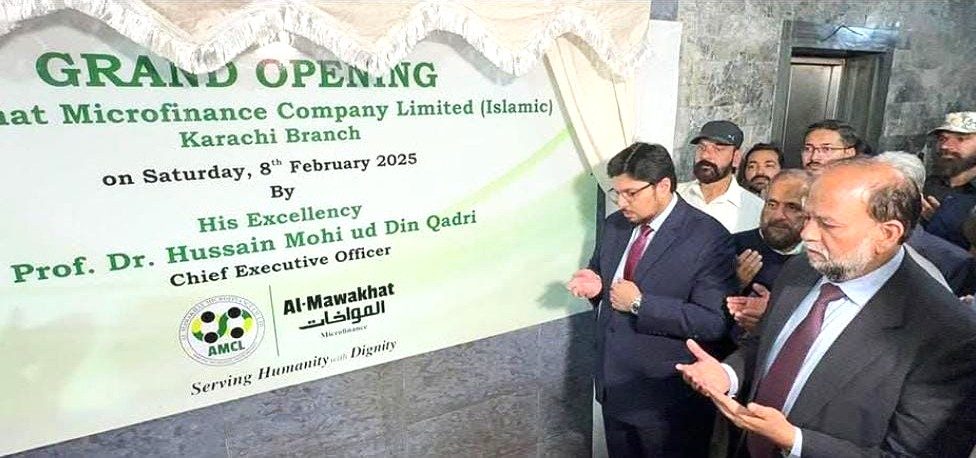
By Imran Ahmed
KARACHI: Professor Dr. Hussain Mohi-ud-Din Qadri, CEO of Al-Mawakhat Microfinance Company (AMCL), has inaugurated a new branch in Karachi, marking a significant expansion for the organization beyond its initial operations in Lahore. The move reflects a broader commitment to extending financial inclusion across Pakistan, particularly to communities that have long been marginalized by conventional banking systems.
Speaking at the inauguration ceremony, Dr. Qadri highlighted the organization’s core mission, describing Al-Mawakhat Microfinance as a welfare-driven initiative under Minhaj-ul-Quran. Unlike traditional financial institutions focused primarily on profit, Al-Mawakhat operates with a humanitarian vision, aiming to uplift middle and low-income groups by providing them with access to financial resources. The company’s approach is rooted in Islamic economic principles, emphasizing social responsibility and financial empowerment as tools for poverty alleviation.
As Pakistan’s first microfinance company with a purely welfare-oriented mandate, Al-Mawakhat distinguishes itself by prioritizing financial accessibility for those often overlooked by mainstream lenders. By offering small business financing and microloans, the organization seeks to enable economically disadvantaged individuals to establish and sustain dignified livelihoods. The model is designed not only to provide financial relief but also to promote long-term, self-sustaining economic growth at the grassroots level.
The expansion into Karachi is seen as a strategic step in reaching a larger population, particularly in a city with vast economic disparities. With millions engaged in informal and small-scale businesses, access to microfinance can serve as a crucial catalyst for economic mobility. By facilitating interest-free financial support and focusing on ethical lending practices, Al-Mawakhat aims to foster a system where economic progress is not limited to the privileged few but is accessible to all.
As the organization continues to grow, its impact on community development and financial inclusion is expected to deepen, setting a precedent for microfinance institutions that prioritize social welfare alongside economic sustainability.



